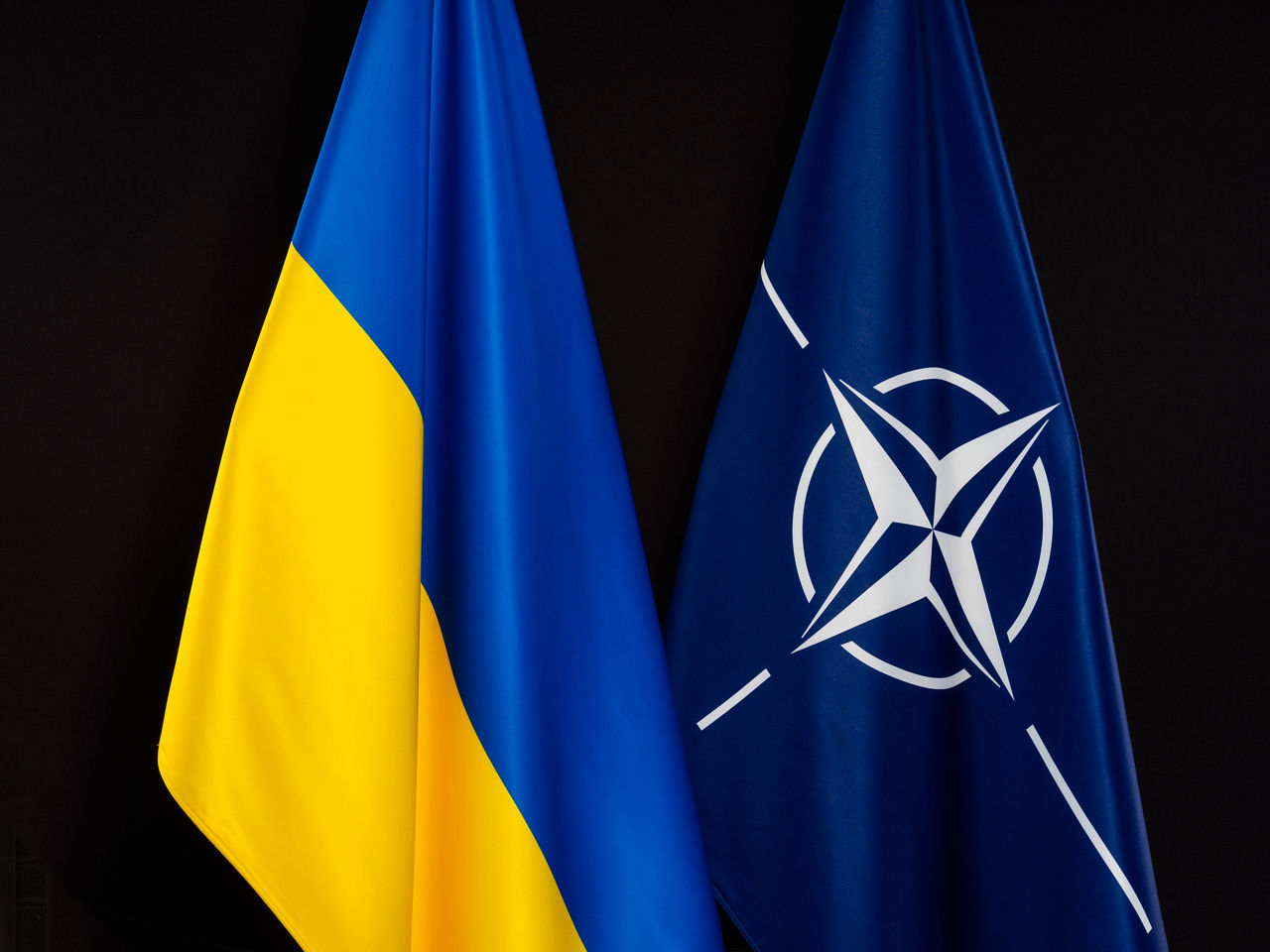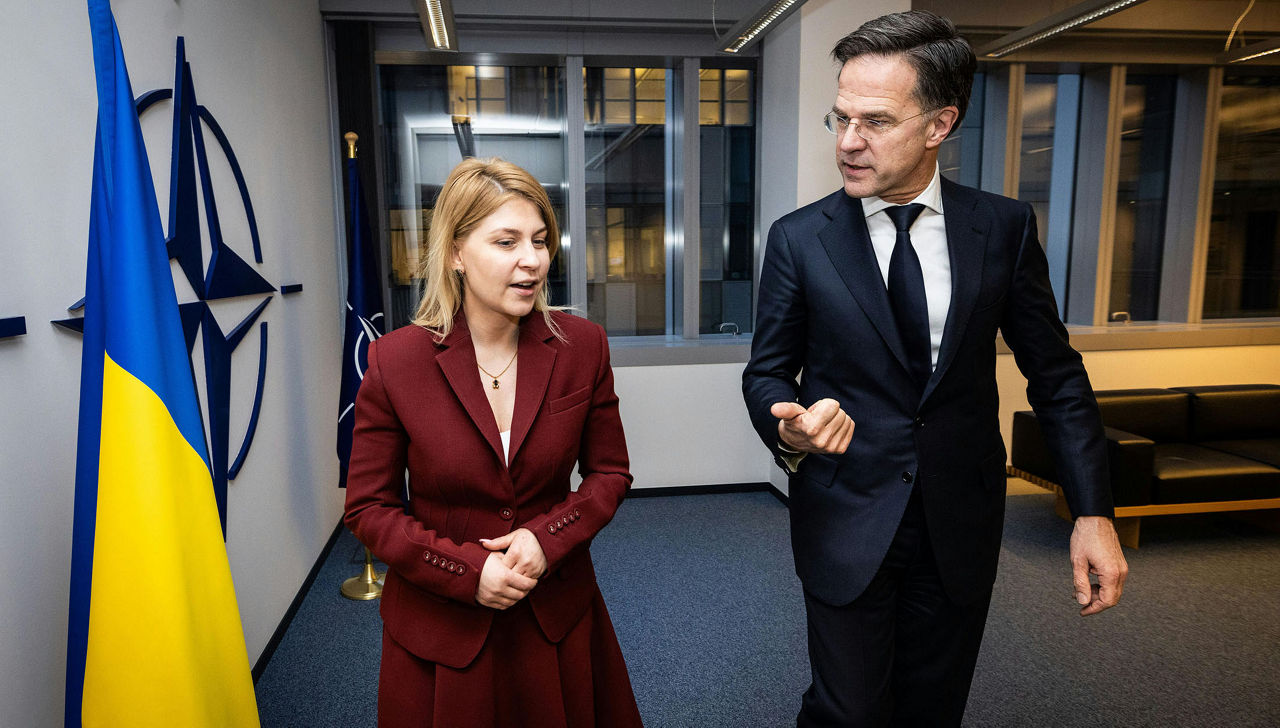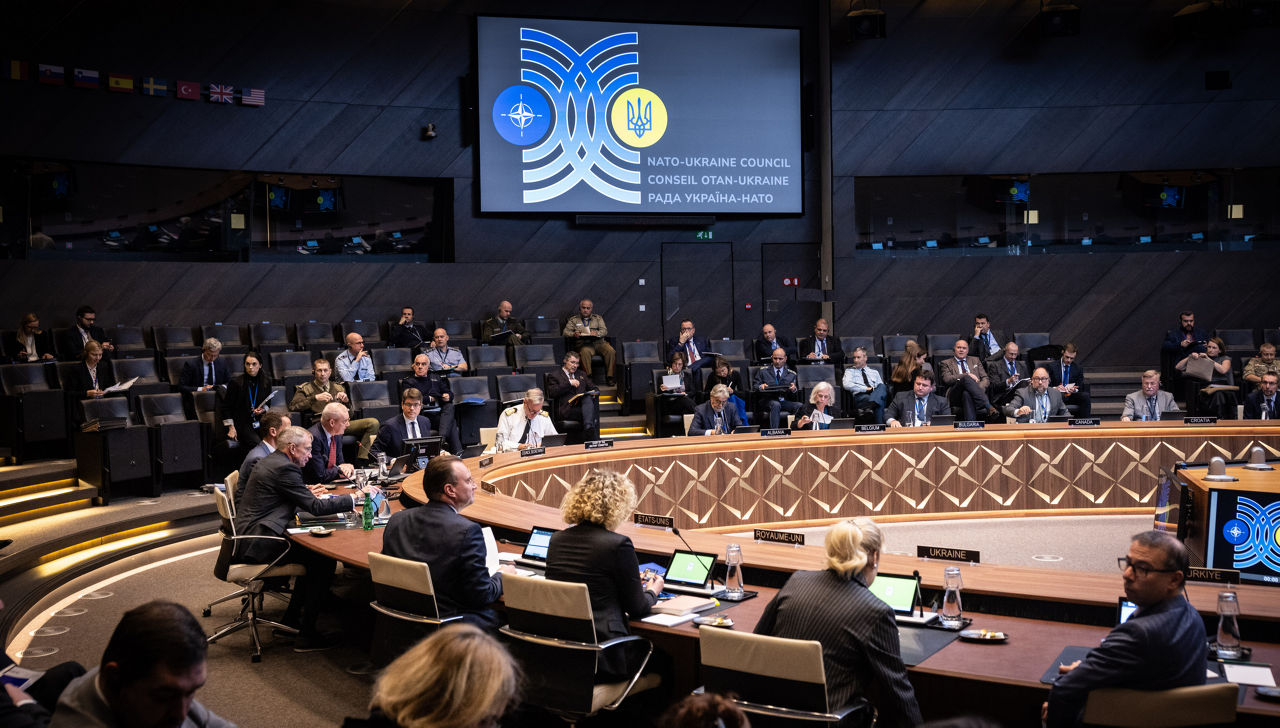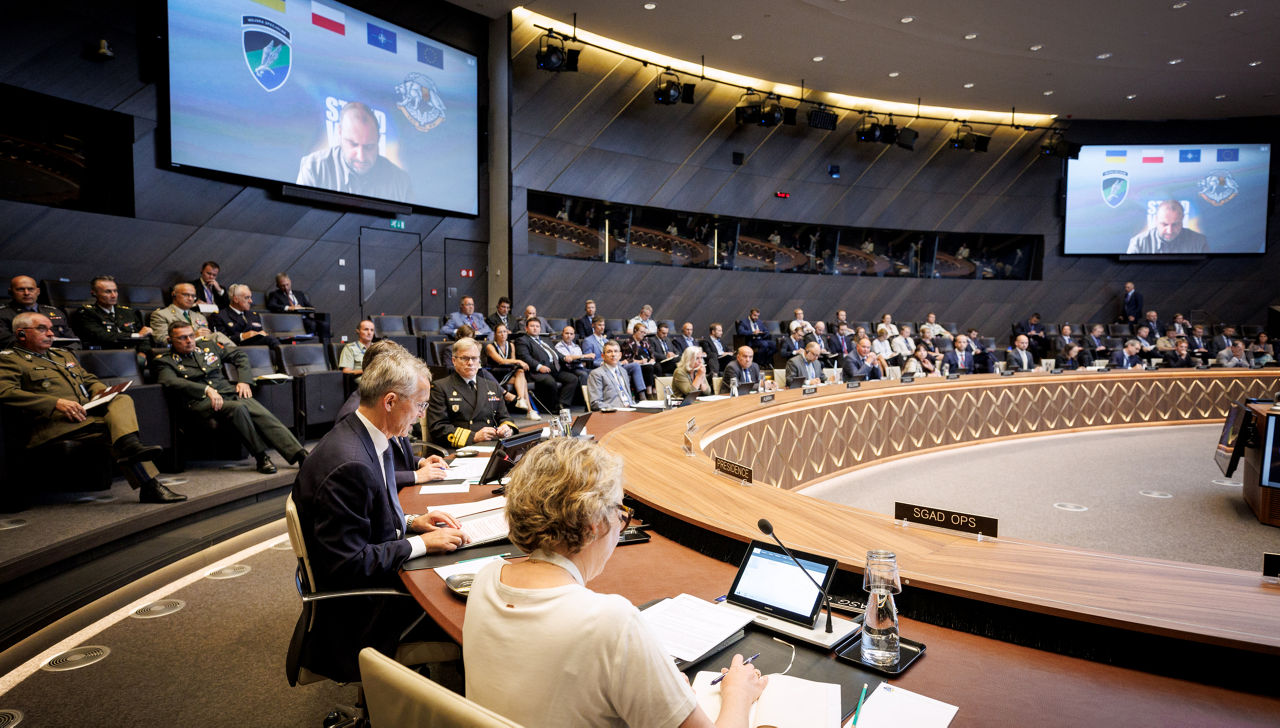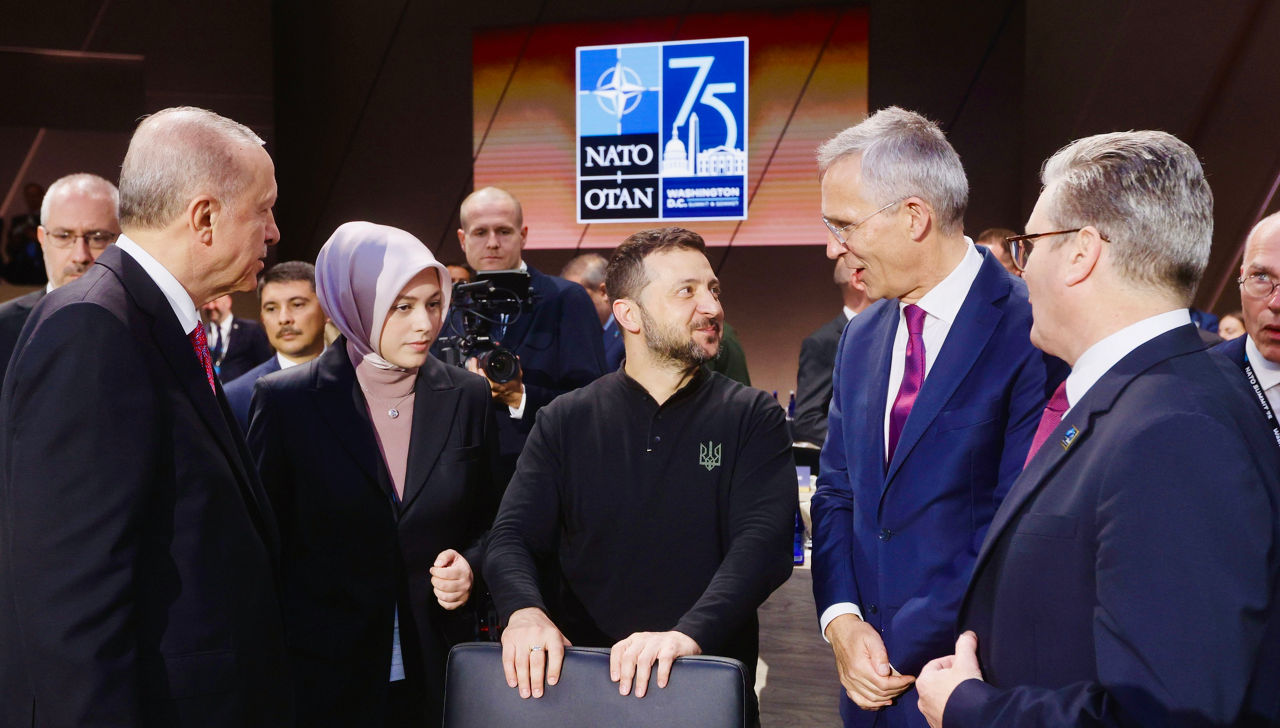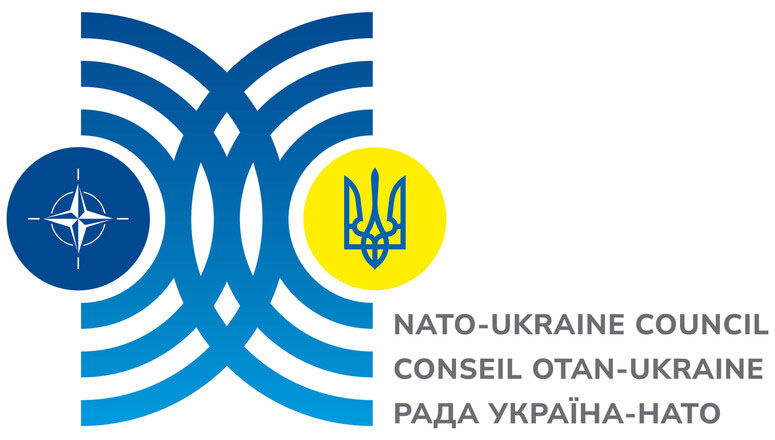Download NATO’s broadcast-quality video content free of charge

Log in
NATO MULTIMEDIA ACCOUNT
Access NATO’s broadcast-quality video content free of charge

Check your inbox and enter verification code
You have successfully created your account
From now on you can download videos from our website
Subscribe to our newsletter
If you would also like to subscribe to the newsletter and receive our latest updates, click on the button below.
Enter the email address you registered with and we will send you a code to reset your password.
Didn't receive a code? Send new Code
The password must be at least 12 characters long, no spaces, include upper/lowercase letters, numbers and symbols.
Your password has been updated
Click the button to return to the page you were on and log in with your new password.
NATO-Ukraine Commission (1997-2023)
Updated: 12 March 2025
The NATO-Ukraine Commission was the decision-making body responsible for developing the NATO-Ukraine relationship and for directing cooperative activities from 1997 to 2023, when it was replaced by the NATO-Ukraine Council. It provided a forum for consultation between the Allies and Ukraine on security issues of common concern, including Russia’s war against Ukraine.
- The NATO-Ukraine Commission was established by the NATO-Ukraine Charter on a Distinctive Partnership signed by Ukrainian and Allied Heads of State and Government in Madrid in 1997.
- This landmark Charter recognised “the solid progress made, across a broad range of activities, to develop an enhanced and strengthened relationship between NATO and Ukraine” since 1991. It also noted that Allies looked forward to Ukraine taking further steps “to deepen the process of integration with the full range of European and Euro-Atlantic structures”.
- The Commission’s key tasks were to ensure proper implementation of the Charter’s provisions, broadly assess the development of the NATO-Ukraine relationship, survey planning for future activities, and suggest ways to improve or further develop cooperation.
- In December 2008, NATO Foreign Ministers decided to further enhance work under the Commission through the development of an Annual National Programme (ANP), to help guide Ukraine’s reform efforts.
- At the 2023 NATO Summit in Vilnius, the NATO-Ukraine Commission was replaced by the NATO-Ukraine Council. This change demonstrates the strengthening of political ties and Ukraine’s increasing integration with NATO.
The role of the NATO-Ukraine Commission in NATO's support to Ukraine
The NATO-Ukraine Commission provided a forum for consultation between the Allies and Ukraine on security issues of common concern, including Russia’s war of aggression against Ukraine.
Following Russia’s illegal annexation of Crimea and military intervention in eastern Ukraine in 2014, the NATO-Ukraine Commission held several extraordinary sessions. On 2 March 2014, Allies and Ukraine convened an extraordinary meeting of the Commission, condemning Russia’s military action against Ukraine. At their meeting in April 2014, Foreign Ministers of the Commission condemned Russia’s illegal and illegitimate annexation of Crimea and stated that NATO and Ukraine would intensify cooperation and promote defence reforms through capacity-building and capability development programmes. The Commission also met at the level of Heads of State and Government at the 2014 Wales Summit and at subsequent NATO summits, reaffirming the Alliance’s support for Ukraine’s sovereignty and territorial integrity within its internationally recognised borders. The Commission continued to meet regularly over the following years, coordinating NATO’s enhanced support to Ukraine.
In January 2022, the NATO-Ukraine Commission met to discuss Russia’s military build-up around Ukraine and within its occupied territories. Several weeks later, the Commission held an extraordinary meeting on 22 February 2022, two days before Russia launched its full-scale invasion of Ukraine. The Allies condemned the further Russian incursion into Ukraine and its flagrant violation of international law, urging Russia to choose the path of diplomacy.
Following Russia’s full-scale invasion of Ukraine and throughout the war, NATO and Ukraine consulted on the security situation and Allied support to Ukraine through the NATO-Ukraine Commission. These consultations continue through the NATO-Ukraine Council.
Other areas of cooperation under the NATO-Ukraine Commission
Other subjects were also discussed within the framework of the Commission, such as the situation in the Balkans, the fight against terrorism and other regional security issues. Joint working groups were set up under the auspices of the NATO-Ukraine Commission to take work forward in specific areas, namely defence and security sector reform, armaments, economic security, and scientific and environmental cooperation. These working groups, along with NATO committees in Commission format, prepared senior-level meetings of the Commission.
The NATO-Ukraine Commission also kept under review Ukraine’s activities in the Partnership for Peace programme, and in the military sphere under the Military Committee and the Ukraine Annual Work Plan.
Participants
All NATO member states and Ukraine were represented in the NATO-Ukraine Commission, which met regularly at the level of ambassadors and military representatives, as well as periodically at the level of Foreign and Defence Ministers and Chiefs of Staff, and occasionally at summit level, involving Heads of State and Government.
Senior-level meetings of the Commission were prepared by the Political Committee in Commission format, which also served as the forum for exchanges on political and security issues of common interest, and the preparation and assessment of Ukraine’s programmes of cooperation with NATO.
Sub-structures
A range of sub-committees and working groups under the auspices of the NATO-Ukraine Commission oversaw cooperation in specific areas. These included:
The NATO-Ukraine Joint Working Group on Defence Reform (JWGDR)
Established in 1998, the NATO-Ukraine Joint Working Group on Defence Reform (JWGDR) pursued initiatives in the areas of civil-military relations; democratic oversight and civilian management of the armed forces and other security sector agencies; defence planning; and the development of policy, strategy and national security concepts.
The JWGDR allowed Ukraine to draw on Allies' considerable experience and expertise, and served as a tool through which the Allies could channel assistance. It also provided the institutional basis for NATO's cooperation with ministries and agencies engaged in implementing defence and security sector reform in Ukraine. These included the National Security and Defence Council, the Ministries of Foreign Affairs and Defence, National Guard, Border Guard Service, Security Service of Ukraine, the Verkhovna Rada (Ukrainian Parliament) and others.
All NATO member states and Ukraine were represented in meetings of the JWGDR, and relevant partner countries and civil society representatives were invited to the JWGDR on a case-by-case basis.
The NATO-Ukraine Joint Working Group on Defence Technical Cooperation (JWGDTC)
The NATO-Ukraine Joint Working Group on Defence Technical Cooperation (JWGDTC) was established in 2004. It worked towards increased cooperation in capability development, defence equipment procurement processes and the development of technical standards. This included standardization, codification, logistics and life cycle management, as well as cooperation with NATO's Conference of National Armaments Directors and the NATO Science and Technology Organization. This Joint Working Group was also a forum for discussion of Ukraine's defence industry reform efforts.
The NATO-Ukraine Joint Working Group on Scientific and Environmental Cooperation (JWGSEC)
Ukraine has been actively engaged in numerous projects of NATO's Science for Peace and Security (SPS) Programme since 1991. Since 2014, in response to Russia’s illegal annexation of Crimea and aggression in eastern Ukraine, cooperation in the field of security-related civil science and technology has been strengthened, and Ukraine has since become the largest beneficiary of the SPS Programme. The NATO-Ukraine Joint Working Group on Scientific and Environmental Cooperation (JWGSEC) led the oversight of this area of cooperation.
The objectives of all these working groups continue in sub-committees of the NATO-Ukraine Council.


